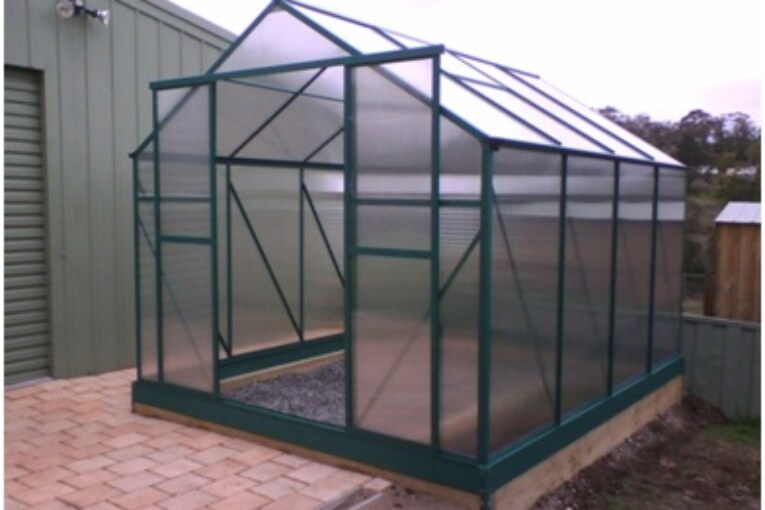
There are various properties of plastics as a construction material which makes it useful buildings and other construction works. Plastics are used in buildings and construction works in many forms.
What is Plastic?
The Plastic is an organic substance and it consists of natural or synthetic binders or resins with or without molding compounds. It is also used as an engineering material available in the market all over the world. To know the importance of plastics as an engineering material, it will be interesting to know about its properties.
Example of Plastics as a Construction Material
In Beijing, capital of china, Beijing national aquatic center (water cube) named structure was constructed for the purpose of swimming competitions in 2008 Olympics. The structure consists of steel frames which are covered by ETFE pillows (ethylene Tetra Fluoro Ethylene) which is a fluorine based plastic.
ETFE plastic have high corrosive resistance and as well as high strength against temperature. This is the largest ETFE structure in the world.
Properties of Plastics as a Construction Material
Each plastic material has its own peculiar properties to suit its particular uses. The success of plastic as an engineering material will depends up on the selection of variety of plastic. Following are the general properties of plastic.
- Appearance
- Chemical resistance
- Dimensional stability
- Ductility
- Durability
- Electric insulation
- Finishing
- Fire resistance
- Fixing
- Humidity
- Maintenance
- Melting point
- Optical property
- Recycling
- Sound absorption
- Strength
- Thermal property
- Weather resistance
- Weight
Appearance of Plastics
In the market there are so many types of models of plastics are available such as transparent, colored etc. suitable pigments are added in the process of manufacturing of plastic material to get these different properties. So, these will give good appearance to the structure and makes it attractive.
Chemical Resistance of Plastics
Plastics offer great resistance against chemicals and solvents. Chemical composition of plastics during manufacturing will decide the degree of chemical resistance. Most of the plastics available in the market offer great corrosion resistance. So, corrosive metals are replaced by plastic in the case of water carrying pipes, etc.
Dimensional Stability
Thermo-plastic types of plastics can be easily reshaped and reused. But in the case of thermo-setting type plastics, it is not possible to reshape or remold the material.
Ductility of Plastics
Ductile nature of plastic is very low. When tensile stress are acting on plastic member they may fail without any prior indication.
Durability of Plastics
Plastics with sufficient surface hardness are having good durability. Sometimes, plastics may affected by termites and rodents especially in the case of thermo-plastic types, however it is not a serious problem because of no nutrition values in plastic.
Electric Insulation
Plastics are good electric insulators. So they are used as linings for electric cables and for electronics tools.
Finishing
Any type of finishing treatment van be given to the plastics. Mass production of plastic particles with uniformity of surface finish is done by having technical control during manufacturing.
Fire Resistance
The resistance to temperature or fire for varieties of plastics considerably varies depending upon the structure. Plastics made of cellulose acetate are burnt slowly. PVC made plastics do not catch fire easily. Plastics made of phenol formaldehyde and urea formaldehyde are fire proof materials.
Fixing
Fixing of plastic materials is so easy. We can bolt, drill or glued to fix plastic material position.
Humidity
The plastics made up of cellulosic materials are affected by the presence of moisture. The plastics made of poly vinyl chloride (PVC pipes) offers great resistance against moisture.
Maintenance
Maintaining of plastics are so simple. Because they do not need any surface finishing coats or paints etc.
Melting Point
Generally plastics have very low melting point. Some plastics may melt at just 50oC. So, they cannot be used in the positions of high temperature. Thermo setting type of plastics are having high melting point than thermo plastic type plastics. However, thermo setting types are cannot used for recycling. To improve the heat resistance of the plastics, glass fiber reinforcement is provided in its structure.
Optical Property
There are so many types of plastics. Some plastics are transparent which allows light in its original direction and some are translucent nothing but semi-transparent which allows light but changes light rays direction.
Recycling of Plastics
Disposal of plastics in the environment causes severe pollution. But it is not a serious problem because of its recycling property. We can use plastic waste disposal conveniently to produce drainage pipes, fencing, hand rails, carpets, benches etc.
Sound Absorption
By the saturation of phenolic resins we can produce acoustic boards. These acoustic boards are sound absorbents and provide sound insulation. Generally for theatres, seminar halls this type of acoustic ceilings are used.
Strength
Practically we can say that plastic is strong material but ideal section of plastic which is useful for structural component is not designed yet. Generally by reinforcing fibrous material into plastic improves its strength. If the strength to weight ratio of plastic is same as metals, then also we cannot give preference to plastics because of various reasons like, heavy cost, creep failure may occur, poor stiffness and sensitive against temperature.
Thermal Property
The thermal conductivity of plastics is very low and is similar to wood. So, foamed and expanded plastics are used as thermal insulators.
Weather Resistance
Most of the plastics except some limited varieties are capable of resistance against weathering. But, major problem is plastics when the plastics are exposed to sunlight, they are seriously affected by ultra violet rays and gets brittle. To prevent this, plastics are incorporated by fillers and pigments which helps to absorb or reflect the UV rays to surface.
Weight of Plastics
The Plastics have low specific gravity generally ranges from 1.3 to 1.4. So they are light in weight and easily transportable to any place in a large quantity.


